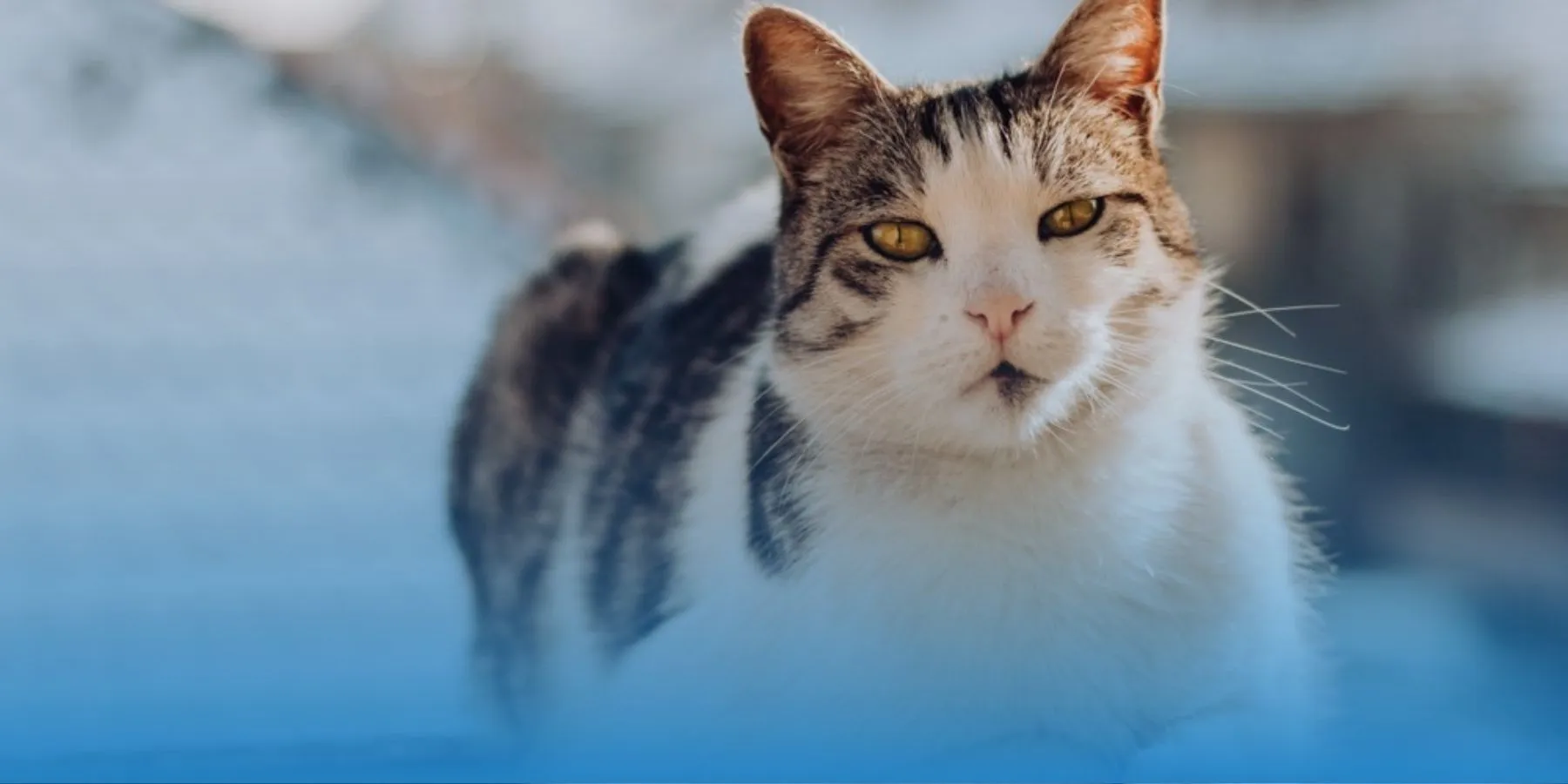PET HEALTH
Antifreeze is highly toxic to cats, and in the wintertime, antifreeze poisoning can be a very real danger. Do you have an outdoor cat who could potentially be exposed to antifreeze? Read on to learn about this dangerous substance and what you can do to keep your cat safe.
Symptoms of Antifreeze Poisoning
Antifreeze is a liquid that you can mix with water to create coolant, which then controls the temperature of your car’s engine and stops the water in your engine system from freezing1. It’s a good idea to check your car’s coolant levels in the winter, as cold weather can wreak havoc on your cooling system.
Antifreeze contains either ethylene glycol or propylene glycol. While both liquids can be potentially toxic, ethylene glycol is much more dangerous. This substance is highly toxic to humans, dogs, and cats alike. In cats, just a small amount of ethylene glycol can be extremely poisonous. One eighth of a teaspoon per pound of body weight of undiluted antifreeze can be fatal.
The symptoms of antifreeze poisoning in cats typically show up in three stages:
Stage one occurs within 30 minutes of ingestion8. Symptoms include lethargy, incoordination, excessive thirst and urination, and vomiting. You might see your cat stumbling around as if he or she is intoxicated.
Stage two is 12 to 24 hours after ingestion. During this stage, it might seem like your cat is doing better and outward signs of poisoning may improve. However, your cat is still in danger — he or she is likely becoming dehydrated and struggling to breathe.
Stage three can also take place anywhere from 12 to 24 hours after a cat ingests antifreeze. By this time, your cat’s kidneys are beginning to fail. You might notice vomiting, seizures, lethargy, no appetite, or depression. Unfortunately, at this stage of antifreeze poisoning, many cats also enter a coma and/or pass away.
Do not wait until visible symptoms appear to take your cat to the vet or call a pet poison helpline. If you suspect your cat has ingested antifreeze, take action right away.
Does Your Cat Need a Vet Visit?
What to Do For Antifreeze Poisoning in Cats
Bring your cat to your vet or a local emergency clinic. There, a vet will be able to run a blood test to detect ethylene glycol (this test can also be done at some human hospitals). You can also call the Pet Poison Helpline at 800-213-6680 to get help.
Don’t hesitate to take action as quickly as possible, regardless of whether your pet is showing symptoms or not. If your cat is already exhibiting clinical signs of ethylene glycol poisoning, it might be too late.
The antidote for ethylene glycol poisoning only works if it’s given within three hours of ingestion. Go ahead and call your vet right away if you suspect that your cat may have ingested antifreeze.
Preventing Antifreeze Poisoning in Cats
Ethylene glycol tastes sweet, so it attracts many cats. If antifreeze spills on your driveway, your cat might drink or lick it up. Check your car on a regular basis to make sure it doesn’t develop a coolant leak. If you keep antifreeze in your garage, store it in clearly labeled containers that has a tight seal and won’t break if dropped.
If you do happen to spill any antifreeze, immediately block off the area while you clean it up.
You can clean up an antifreeze spill by covering the spill with something to absorb the liquid - such as cat litter or paper towels. After covering the spill with an item like paper towels, let it sit for a couple of hours. After time has passed, begin wiping everything up and thoroughly washing the area with soap and water.
If you need to get rid of antifreeze, don’t just throw it away or pour it out. Take your used antifreeze to a local disposal facility or talk to your local mechanic or auto shop about whether they’ll help you get rid of it4.
It’s also important to note that antifreeze isn’t found solely in coolant. Antifreeze is also present in other solutions used in your car, such as brake fluid and motor oil10. You’ll also find antifreeze in some paints and wood stains. And finally, even snow globes can contain antifreeze, too. Make sure to keep all of these items safely stored out of your pet’s reach throughout the year.
Antifreeze can be extremely dangerous and potentially life-threatening to your cat. This winter, make sure you’re taking the proper steps to keep your pet safe. If you think your cat may be sick, or potentially got into something they shouldn't have, check out the main symptoms of cat poisoning.
Consider Cat Insurance
Looking for more ways to help keep your cat happy and healthy? Consider learning more about a cat insurance policy and about MetLife Pet Insurance. Our cat insurance policies can help you provide the coverage and care your furry family member deserves. Get your free quote today.

